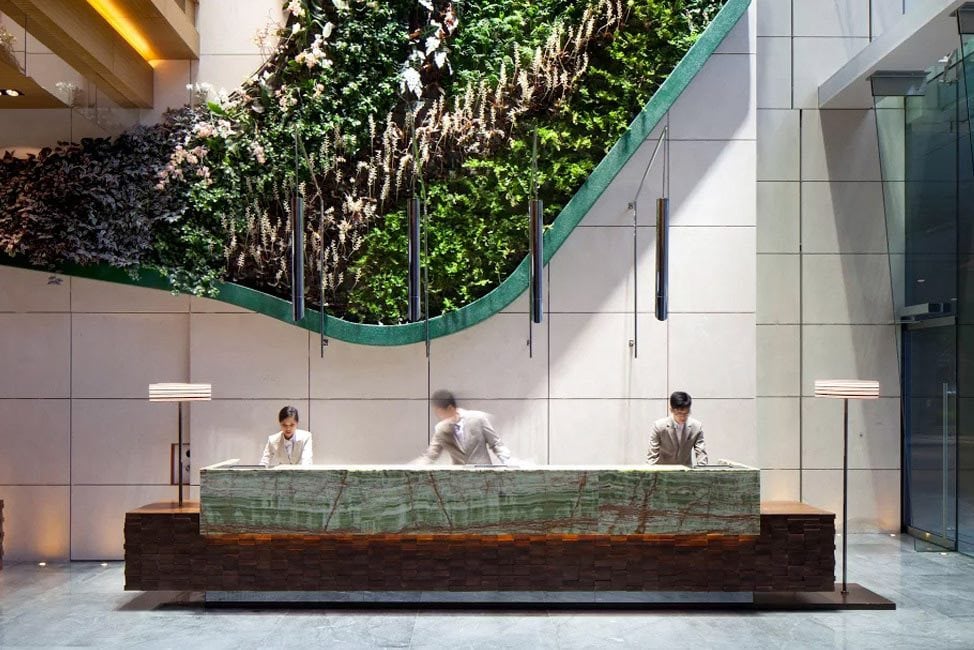Skift Take
The world is in dire need of better, more realistic hospitality training and accreditation. Hospitality and social environments will only continue to grow as we desire to get off of our phones, look up from screens and take in generous hospitality and be surrounded by others in lively environments.
Many of us are passive consumers of hospitality.
We stay at a hotel, or are served at a restaurant, without a passing thought of the logistics happening behind the scenes: The prep that happens at a restaurant, fish being deboned, the mise en place being prepared and maintained. Or at a hotel, the series of events that culminate with a club sandwich being delivered to your room on an elegant tray, bacon and bread just right.
Behind a lot of this is years of service and hospitality training, figuring out how to maintain consistency of standards and ensuring that guests are both welcomed and anticipated. And also managing chaos and fluid environments: angry customers, deliveries that don’t arrive, how to take great care of frequent guests and how to engineer for empathy.
People like Danny Meyer have elevated this to an art form with his Union Square Hospitality Group. From the types of personalities that are hired, to how they ascend the ranks. He’s a master of the idea that “Service is a monologue, hospitality is a dialogue,” and that at the end of the day, a feeling lasts longer than the specific things that occurred.
To learn more about this process, on a recent trip to Hong Kong, I opted away from my usual go-to hotels in favor of trying a new hotel for a night: Hotel ICON in Kowloon. In addition to being a top-rated business hotel on TripAdvisor, it is also a hospitality laboratory of sorts. We’re all familiar with the great hospitality schools of old, at Cornell and in Lausanne, but what does a more modern approach look like today and how could it be replicated?
Attached to the physical hotel is a school that is training the next generation of hospitality leaders. Owned by Hong Kong Polytechnic University, Hotel ICON operates as a research and training facility for the School and Hotel of Tourism Management (SHTM) in Hong Kong.
Students are dressed in different brown attire and represent the top 10 percent of the class. They work alongside full-time staff. Some are on the track to become the future general managers of luxury hotels around the world, but some are learning the craft inside and out at a tactical level, getting outside theory and the textbook and into real-time experiences with customers. One senses that there can only be things that are learned in real-life, and also the ability to retreat back into the classroom and dissect what worked and what didn’t.
And the experience as a guest? No different than any top-end hotel in the world. Attentive doormen, a seamless checkin (with preparation made possible via a smooth mobile experience), phones answered on the first ring, and crisp housekeeping. There was no discernible difference and you couldn’t tell that there were students in some of these roles. Effort is effort, it seems.
Richard Hatter, the hotel’s GM and an adjunct professor at the school told me the guests are “pleasantly supportive” and view the hotel as “progressive in terms of R&D and trying out new things.”
A new style of education is required, one that comes more from a learning laboratory rather than old, staid institutions. One that will teach students not only the craft of hospitality and decorum, but also how to interact and embrace the coming interplay between technology and old school service. The ICON seemed like a model the overall industry needs to look to as they train the new ranks of the front-line.
Have a confidential tip for Skift? Get in touch
Tags: labor
Photo credit: A promotional image of the front desk of Hotel ICON in Hong Kong, which has developed a hospitality training laboratory. Hotel ICON
